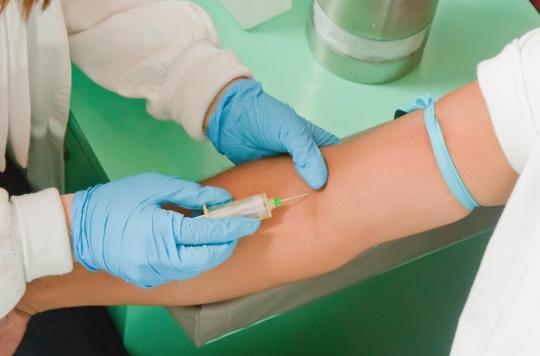Serological tests, which indicate whether a person has developed antibodies preventing reinfection, suffer from the lack of knowledge about the link between the level of antibodies and the protection enjoyed by the person. Despite this, these tests are essential to best address deconfinement and fight against the spread of the virus.

- Uncertainty about the presence of antibodies that prevents new infection diminishes the role of serological tests.
- In the field, many health professionals perform these tests without necessarily being authorized to do so.
- If a person is positive for the serological test, they must not let their guard down and continue to apply barrier gestures.
Many French people wonder whether or not they have been infected with Covid. Was the cough they had at the start of confinement linked to the coronavirus? If you haven’t had any symptoms but a friend has and you saw him shortly before, have you been infected? To answer these different questions, an operation delivers a verdict: the serological test. These blood tests look for the presence of antibodies indicating whether a person has had Covid-19.
Tests already carried out in the field
These tests, officially reimbursed by Social Security since last week, play a complementary role in deconfinement and the fight against the spread of the coronavirus. The lack of certainty about immunity and the presence of antibodies to protect against further infection is the main reason for this. “We probably cannot generalize their use until we have more information on the correlation between antibody level and protection, and on the duration of protection.”, confirms to AFP Christophe D’Enfert, scientific director of the Institut Pasteur, where the performance of the approved tests was evaluated.
A blur on immunity persists but does not prevent health professionals from carrying out these tests in the field. “If a patient asks me: ‘Have I been in contact with the virus?’ Yes, I suggest the serological test. But if he asks me the question: ‘Am I immune?’ or ‘Am I contaminating?’, I tell him that I cannot answer…”, testifies Hikmat Chahine, medical director of the group of biological laboratories Unilabs, to AFP. In fact, these serological tests have already been carried out without a prescription for several weeks in many medical biology laboratories, and some local authorities are organizing screening campaigns, such as the city of Nice, which will offer its inhabitants free serological screening on the volunteer basis from Wednesday. Some pharmacies also make them, although they are currently not authorized to do so.
Even if the serology is positive, the precautionary principle prevails
The performance of these tests responds to knowledge about the virus which is refined day after day and tends towards confirmation that after an infection, a patient develops antibodies which protect him. At the end of May, a study carried out by the Institut Pasteur and the Strasbourg University Hospital confirmed that a month after their recovery, patients still have antibodies which prevent reinfection. The notion of cross-immunity has also emerged, whereby many people are immune to SARS-CoV-2 through antibodies developed against other bacteria. There would also be cross-cellular immunity between SARS-CoV-2 and cold coronaviruses, but this does not guarantee the presence of antibodies.
If a person is found to be positive in the serological test, indicating that he has antibodies that allow a priori to prevent a new infection, this does not mean that she must forget the barrier measures and resume the same habits as before the pandemic. “If my serology is positive, does that allow me to go for a walk in the streets, in stores without a mask? The answer is no. We don’t know enough yet”, warns Professor Pierre Tattevin, infectious disease specialist at the Rennes University Hospital. It is therefore the precautionary principle that prevails. “If you shake hands with someone who is sick, even if you don’t get sick yourself, you can then shake other hands or deposit virus on surfaces and thus infect other people.”, thus warned the Minister of Health, Olivier Véran.
.















